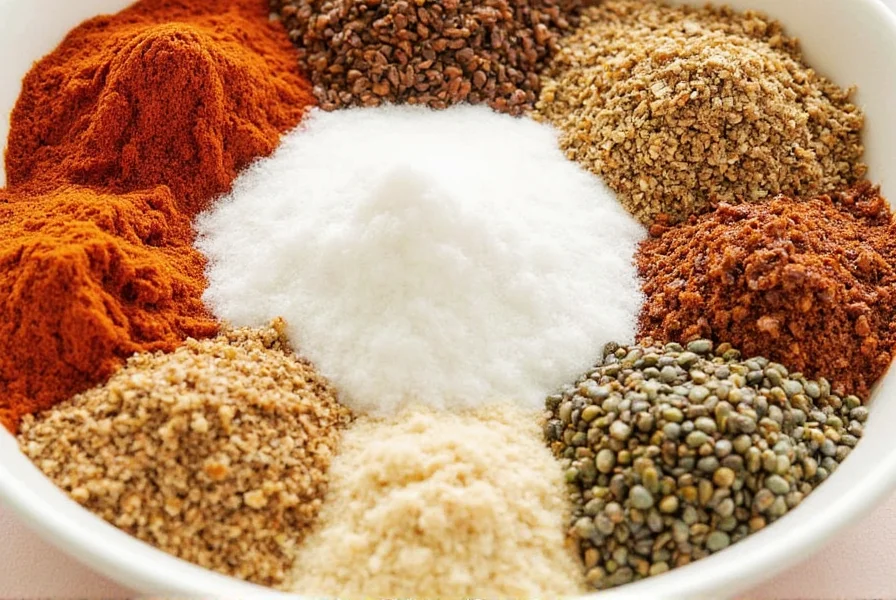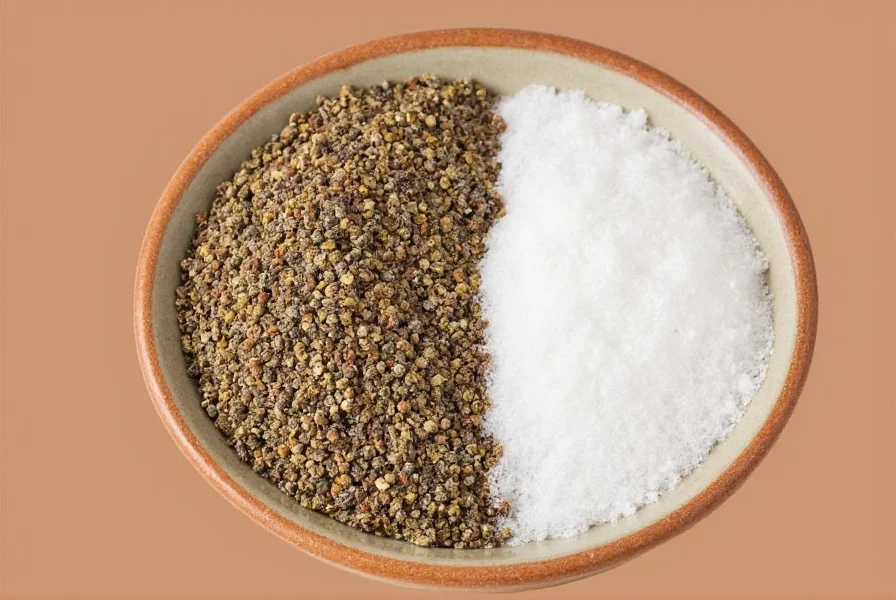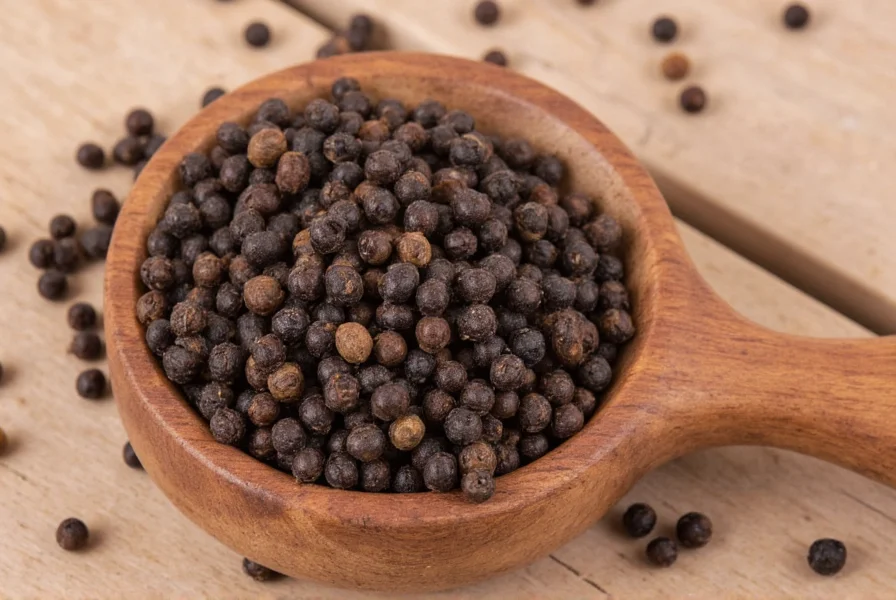Black pepper is one of the world's most versatile spices, offering numerous health benefits and culinary uses. This humble ingredient has been valued for centuries and remains a staple in kitchens worldwide.
Table of Contents
- What Is Black Pepper, Anyway?
- Why Is It Called 'Black' Pepper?
- Health Benefits You'll Love
- 5 Practical Cooking Tips with Black Pepper
- Black vs. White vs. Green: What's the Difference?
- Buying Guide: How to Choose the Best Black Pepper
- Beyond the Kitchen: Unexpected Uses for Black Pepper
- Frequently Asked Questions About Black Pepper
- Conclusion: Why Every Kitchen Needs This Spice
What Is Black Pepper, Anyway?
You know it by taste and smell, but where does it come from? Black pepper comes from the dried fruit of the Piper nigrum plant — those little berries are called peppercorns. When harvested unripe and then dried, they turn into the wrinkled, blackish pellets we know as black pepper.

Fun fact: black pepper was once so valuable it was referred to as "black gold." Traders would exchange it ounce-for-ounce with silver in ancient times. Talk about a spice with street cred!
| Spice Type | Processing Method | Flavor Profile |
|---|---|---|
| Black Pepper | Unripe fruit, boiled & dried | Sharp, bold, slightly floral |
| White Pepper | Ripe fruit, soaked to remove skin | Milder, earthier, more pungent |
| Green Pepper | Unripe fruit, preserved fresh or freeze-dried | Fresh, herbal, grassy |
Health Benefits You'll Love
It's not just a flavor booster — black pepper has some serious health perks. One key compound found in black pepper is piperine, which enhances nutrient absorption, especially curcumin (the active ingredient in turmeric).
- Boosts Nutrient Absorption: Helps your body absorb fat-soluble vitamins like A, D, E, and K.
- Anti-inflammatory Properties: May help reduce inflammation and support digestive health.
- May Aid Weight Management: Preliminary studies suggest piperine might suppress fat cell formation.
5 Practical Cooking Tips with Black Pepper
- Grind It Fresh: Whole peppercorns retain their flavor better than pre-ground pepper. Invest in a quality grinder or mortar and pestle.
- Add at the End: For maximum flavor impact, add black pepper near the end of cooking.
- Pair with Fatty Foods: Its sharp bite balances rich dishes like steak, creamy pasta, or buttery sauces.
- Use It in Desserts: Yes, really! A tiny pinch adds depth to chocolate desserts, spiced cakes, or even coffee blends.
- Create Custom Blends: Mix black pepper with sea salt, citrus zest, or herbs for a unique seasoning mix.

Black vs. White vs. Green: What's the Difference?
While all these spices come from the same plant, the differences lie in when they're harvested and how they're processed. Here's a quick breakdown:
| Characteristic | Black Pepper | White Pepper | Green Pepper |
|---|---|---|---|
| Harvest Time | Unripe | Ripe | Very unripe |
| Texture | Crunchy, coarse | Soft, powdery | Juicy, soft |
| Best Use | All-purpose seasoning | Sauces, soups | Salads, gourmet dishes |
Buying Guide: How to Choose the Best Black Pepper
Not all black peppers are created equal. Here's what to look for when shopping:
- Whole Peppercorns: Look for uniform size, deep color, and a strong aroma. Avoid discolored or dusty ones.
- Origin Matters: Vietnamese and Indonesian black peppers tend to be milder, while Indian Malabar and Tellicherry peppers offer bolder, complex flavors.
- Organic vs. Conventional: Organic options are grown without synthetic pesticides, which can be a plus if you're grinding and consuming larger quantities.
- Packaging: Choose airtight containers to preserve freshness and flavor.
| Brand | Type | Flavor Notes | Best For |
|---|---|---|---|
| Kalustyan's Tellicherry | Whole Peppercorns | Rich, woody, with hints of citrus | Cooking, grilling, and marinades |
| Spice Islands Black Pepper | Pre-Ground | Earthy, medium heat | Baking, everyday use |
| Diamond Crystal Gourmet Peppercorn Blend | Mixed Grains | Varied intensity and texture | Finishing touch on salads, meats |
Beyond the Kitchen: Unexpected Uses for Black Pepper
Who knew black pepper had tricks up its sleeve beyond your dinner plate?
- Natural Pest Repellent: Crushed black pepper mixed with water can deter ants and spiders.
- DIY Beauty Recipes: Used in homemade scrubs for its exfoliating properties and circulation-boosting effects.
- Aromatherapy Boost: A few drops of black pepper essential oil in a diffuser may help ease anxiety and promote focus.
- Plant Fertilizer Enhancer: Some gardeners swear adding a dash of black pepper helps stimulate root growth in seedlings.
Frequently Asked Questions About Black Pepper
What is the difference between black pepper and regular pepper?
There is no difference—black pepper is "regular" pepper. The term "black pepper" specifically refers to the dried, unripe fruit of the Piper nigrum plant. When people say "pepper" without specification, they're almost always referring to black pepper, which is the most common variety used worldwide.
Is black pepper healthy?
Yes, black pepper offers several health benefits. It contains piperine, a compound that enhances the absorption of nutrients like curcumin (from turmeric) and fat-soluble vitamins (A, D, E, and K). It also has anti-inflammatory properties and may support digestive health. Some preliminary studies suggest piperine might help suppress fat cell formation, potentially aiding in weight management.
Should I buy whole peppercorns or pre-ground black pepper?
Whole peppercorns are strongly recommended over pre-ground pepper. The essential oils and compounds that give black pepper its distinctive flavor and aroma begin to dissipate immediately after grinding. Whole peppercorns can stay fresh for up to 3 years when stored properly, while pre-ground pepper loses most of its flavor within months. For the best taste experience, grind your pepper just before using it.
When is the best time to add black pepper to dishes?
For maximum flavor impact, add freshly ground black pepper toward the end of cooking. Heat diminishes pepper's volatile compounds, so adding it too early can result in diminished flavor. However, for dishes that require longer cooking times (like stews or braises), you might add some pepper early for depth and finish with fresh pepper at the end for that signature sharp bite.
What makes black pepper different from white and green pepper?
All three come from the same plant (Piper nigrum) but differ in harvest time and processing. Black pepper is made from unripe berries that are boiled and sun-dried, giving them their characteristic dark color and bold flavor. White pepper comes from ripe berries with the outer layer removed, resulting in a milder, earthier taste. Green pepper is made from unripe berries that are preserved fresh or freeze-dried, offering a fresher, more herbal flavor profile.
Can black pepper go bad?
Whole black peppercorns don't technically spoil but will gradually lose their potency and flavor over time. Properly stored in an airtight container away from light and heat, whole peppercorns can retain good flavor for 2-3 years. Pre-ground black pepper loses its flavor much faster, typically within 6 months to a year. You'll know your pepper has lost its punch if it has little to no aroma when you open the container.
What are some surprising ways to use black pepper?
Beyond seasoning savory dishes, black pepper has many unexpected uses. It can enhance chocolate desserts with a subtle warmth, improve coffee blends, serve as a natural pest repellent when mixed with water, function as an exfoliant in DIY beauty scrubs, and even help stimulate root growth in seedlings when added to soil. Black pepper essential oil is also used in aromatherapy for its potential anxiety-reducing and focus-enhancing properties.
Conclusion: Why Every Kitchen Needs This Spice
Black pepper isn't just a pantry staple — it's a flavor powerhouse, a health booster, and a secret weapon in your spice arsenal. Whether you're searing a ribeye or experimenting with dessert recipes, this spice deserves a place front and center.
So next time you reach for the shaker, remember: you're holding a piece of culinary history in your hand. Use it wisely, grind it fresh, and savor every bite.












 浙公网安备
33010002000092号
浙公网安备
33010002000092号 浙B2-20120091-4
浙B2-20120091-4